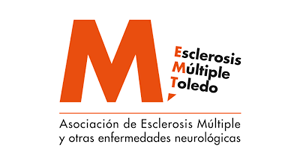- Patients grouped in Multiple Sclerosis Spain (EME) are calling on the Ministry of Health and the Autonomous Communities to take the necessary measures to ensure the early diagnosis and prompt treatment of the disease.
- Starting treatment within the first six months after the onset of symptoms significantly influences the prognosis of the disease, making early diagnosis essential.
The Multiple Sclerosis Association of Toledo (ADEMTO) joins the slogan of Multiple Sclerosis Spain (EME): From the first symptom, time is gold, on the occasion of World MS Day.
The latest report from the Waiting List Information System of the National Health System reveals an alarming statistic for people with Multiple Sclerosis and other neurological diseases: the average wait time for a Neurology appointment, at 130 days, is the highest of all specialties.
This severe delay directly affects key issues in the life of a person with Multiple Sclerosis: detection, diagnosis, and early treatment. “This situation is truly concerning: in Multiple Sclerosis, as in other neurodegenerative diseases, time is gold, because time is brain. That a person has to wait on average more than four months to be seen by Neurology can affect the rest of their life,” stresses Ana Torredemer, president of Multiple Sclerosis Spain. “Being a woman adds barriers to the diagnostic process,” Torredemer points out, referring to a report developed by EME with financial support from the Ministry of Social Rights, Consumer Affairs, and Agenda 2023, which indicates that 54.54% of the more than 1,000 women surveyed had their initial symptoms attributed to causes other than MS, thereby delaying the diagnosis.
On the occasion of World Multiple Sclerosis Day 2024, EME joins the International Multiple Sclerosis Federation (MSIF) with Diagnosis as the central theme. Under the slogan From the first symptom, time is gold, patients emphasize the importance of improving diagnosis times for the disease in Spain, highlighting the keys to achieving this: greater social awareness, improved training for healthcare professionals, achieving equity in care throughout the country, and adopting urgent measures to reduce waiting times.
Indeed, a patient’s postal code determines their quality of life with Multiple Sclerosis: not all regions have specialized units, so the quality of care is significantly affected depending on where they live. While some people may receive specialized MS care from neurologists or nurses, others are treated by general practitioners.
The same applies to neurorehabilitation treatment: limitations in the National Health System result in very limited and non-specialized care in these therapies, relegating patients to private clinics or to patient associations and foundations, which play a crucial role in trying to provide and make accessible these specialized emotional, social, and rehabilitative support services after diagnosis, where the public system does not reach.
A recent study published in 2023 indicates that starting treatment within the first six months after the first symptom makes a significant difference in the medium and long term. “Undoubtedly, the importance of receiving a diagnosis as soon as possible is associated with the urgency of starting treatment as soon as possible. Currently, there are numerous therapeutic options capable of slowing or even stopping the disease, and early access for patients will significantly impact their quality of life and can prevent or delay disabilities,” says José María Prieto, head of the Neurology Department at the Clinical Hospital of Santiago and president of the EME Medical Advisory Committee.
Research is the fundamental pillar to ending MS. ADEMTO participates in the European research project IMMUTOL. The IMMUTOL consortium brings together experts and institutions from various sectors, including research institutions, academia, patient associations, hospitals, and corporate SMEs.
IMMUTOL members collectively address the technological challenges in developing cellular products available for the treatment of autoimmune diseases, focusing on different and complementary steps in the development chain. These steps include basic research in immunotolerance mechanism biology, cells with different therapeutic approaches, clinical translation, regulatory aspects, and related health and economic technology.
IMMUTOL aims to address unmet medical needs using modern technological approaches, ranging from the initial design of an innovative cellular product, through in vitro and in vivo preclinical testing, to innovative GMP manufacturing processes and the preparation of applications for clinical trials.


